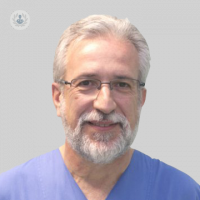FAQ for colonoscopy
Written by:What is a colonoscopy?
It is a method to explore the colon or large intestine. An apparatus (colonoscope) is used that carries a video camera and allows the taking of biopsies, removal of polyps or placement of prostheses in tumors.
How to perform the exam?
The colonoscope is inserted through the anus, through which the entire large intestine and the end of the small intestine (ileum) are traversed and visualized.. In order for the examination to be effective, a bowel cleansing is previously performed. It is an annoying exploration for what should be done under sedation so that the patient is comfortable.

What can be detected with this test?
It is used for the diagnosis of colon diseases such as tumors, colitis, diarrhea, constipation, hemorrhages, etc.
Why is colonoscopy used to prevent colon cancer?
Most colonoscopies are done to prevent colon cancer. It is the ideal method for the detection and removal of colon polyps. Polyps are lesions of the colon mucosa (like warts) that can grow and degenerate into colon cancer. Colorectal cancer prevention programs are based on the detection and removal of polyps when they are still benign and show no symptoms.
How do you prepare for a colonoscopy?
Currently colon cleansing guidelines have been simplified. In most cases, a 24-hour liquid diet with clear liquids and two sachets of a laxative preparation can be taken on the same day of the test.
What does it feel like during and after the colonoscopy?
When performing the sedation scan, the patient has no discomfort. After colonoscopy you may have discomfort in relation to the retention of part of the air that you enter to see.
Is there any alternative to colonoscopy to explore the bowel?
Virtual colonoscopy or colography is a reconstruction of the colon made by CT. Like the colonoscopy, it requires a previous cleaning and the introduction of air. The most important limitation is that it does not allow biopsies or remove the polyps.


